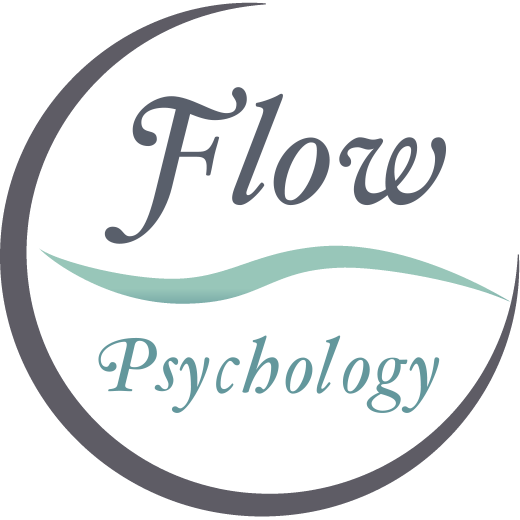
Many unhappy couples feel stuck, this does not mean a relationship cannot be saved. When a couple starts to see all aspects of each other, (rather than just those that initially drew them to one another). The communication starts to break down or always seems to be an issue. Stress from everyday life like work, finances, parenting, in-laws, and sex are causing a couple to grow distant. It can be a crucial time in the relationship where couples counselling and therapy can really help.
Whether you call it marriage counselling, couples therapy, or relationship counselling. What you’re signing up for is inviting a couples therapist into the life of your relationship. I can help you and your partner grow and every couple needs something different.
Some couples or partners may be against couples therapy, and may not believe it can benefit their relationship. The first step requires both partners to acknowledge that their relationship needs help. The second step requires each partner to identify and own his or her role in not “feeding” the relationship and taking responsibility.
Starting couples therapy should begin with both partners being willing participants in the journey of self-inquiry. Choose openness to begin a different type of communication with their partner. If you go into couples therapy with the notion that “it’s all him” or “it’s all her”, you will most likely be disappointed. Change starts with awareness- not just of the other person, but of yourself.
The biggest challenge is making the first session happen
The initial phone call or email: When reaching out before a first couples therapy session, share enough to gauge whether you want to make an initial appointment, but be aware that, unless both of you are on the phone, it may be best to share little beyond the essentials in this conversation so your first encounter with a therapist gives both of you the chance to present the relationship.
The first session: You only need to commit to one session of couples therapy to start–not sign up for a whole course of therapy. This will take some of the pressure off of finding the perfect fit before the first therapy session. Bring an open mind, but also your questions and concerns to that first session. That said, be wary of using the first session just as an interview. Be open to doing some work together–that’s the best way to learn how the couple’s therapist works and get a sense of whether he or she is the right fit for you.
Getting the session in the books: And, of course, for busy people, starting couples therapy can be a logistical challenge. Be prepared to get creative with scheduling and as ready as you can be to make some adjustments to your work and childcare schedule to make it work. I do my best to provide as many options as possible and have day and evening appointments when needed. I also do phone and video couples counselling.
What To Do If Your Relationship Is In Trouble?

If you are experiencing tension or trouble in your relationship or relationships, you may be feeling rejection, abandonment, lack of empathy, disappointment, hopelessness and helplessness, shame, and many other feelings. These are common human experiences that traumatize all of us and become symptoms that are manifested by depression, anxiety, addictions, health problems and all other symptoms and illnesses. If you need advice, work with a compassionate couples & marriage therapist–someone who will really listen to you and provide you with the marriage and couples counselling that the relationship you care about most needs. Work with me. I have helped individuals and couples both emotionally and spiritual
What Happens in couples counselling Dublin and skype from anywhere Therapy Sessions?
If it’s your first time, you may have a sense of trepidation about seeing a therapist. Rest assured there is nothing to fear. The stigma of seeing a professional therapist is a thing of the past. Why close the door to an opportunity of repairing and saving your relationship and live a fuller life?
My clients consider me a straightforward and active therapist, and this is what you can expect in our sessions. As a result, most of my referrals come from past and existing clients. I have spent my professional career learning and searching for the root causes of human suffering and the issues that divide couples and strain relationships. I utilize the most efficient, effective and innovative ways to help my clients. To this end I use evidence-based CBT, COGNITIVE BEHAVIOURAL THERAPY) https://flowpsychology.ie/cbt-cognitive-behavioural-therapy/ and Positive psychology (the science behind happiness) https://flowpsychology.ie/positive-psychology/
How long will couples therapy take?
Of course, this is impossible to answer, but there are a few principles we follow that may help bring clarity to that question:
Getting straight to work helps. In any therapy, I want to roll up our sleeves and get right to work. I am not interested in a long, slow exploration of each partner’s emotional issues. Sure, I want to understand who both of you are, but I recognize that you’re not coming for help if everything is magic and working. We all want to get serious, right away, about helping the relationship grow.
A short-term proposition: In that spirit, couples therapy is always best conceived of as short-term therapy. In good couples therapy, the relationship gets the help it needs to grow–learning how to communicate well, how to disagree productively, how to get needs met, and address difficult issues. Through that process, vulnerabilities that each member of the relationship brings to the table are identified or exposed in new ways. While there’s no formula, individual therapy is often the best place to work on those issues.
Is it strange to seek couples therapy if we aren’t married?
No. In fact, only about half of the couples I see for couples therapy are married. There are all kinds of relationships and all sorts of reasons for seeking help.
We’re not certain we plan to stay together. does that mean we’re not ready for couples therapy?
In good couples therapy, the question of whether or not both people in the relationship are committed to continue has to be discussed, however uncomfortable that may be. While a couples therapist won’t tell you what to do, if there’s uncertainty I can help explore the viability of the relationship as one that can meet everyone’s needs in the present and down the line as a growthful, sustaining relationship.
We don’t really have “problems” but still feel like we need some therapy.
Problems can be a tricky pitfall in therapy: We tend to understand a pre-condition of therapy as “having problems.” Sometimes that’s clear (we fight a lot, we deeply disagree about fundamental matters) and sometimes there’s not much “wrong”–no problems, per se–and yet one or both participants in the relationship want more. More intimacy, more fun and more variety. Better sex. More freedom. A better partnership as parents. What’s great in these cases is that the work can be driven not by problems but by wanting–a powerful force for growth if we let it.
I am worried we’re just going to fight the whole time. isn’t that a waste of your time?
You won’t fight the whole time. I promise. Part of the process IS sorting through the challenges of the relationship. Sometimes intense feelings will come out, as they need to. The job of a great couples therapist is to provide a place where that can happen. While also ensuring it won’t get out of control.
The relationship of your dreams? (seeing past idealism and celebrating imperfection.)
Your relationship isn’t perfect, none of ours is and you’re probably smart enough to know perfection isn’t what couples therapy is all about. But still,the pressure of trying to match that ideal of a relationship that seems perfect can get intense. This is part of why couples therapy is so hard: It looks like relationships shouldn’t be such a struggle, and that they aren’t this hard for other couples.
In admitting that you need help, you’re taking the first step to give up on perfection. Which helps move towards building a better, real relationship. Why is this so important? Idealism is all about what things should be. It’s shaped by social media, movies and books, imagining we know what other people’s relationships are like.
These idealistic ideas creep in:
- My partner and I should never fight. I should trust my partner no matter what (what’s wrong with me if I have doubts?).
- We should have an easier time making sex fun and meaningful.
- I shouldn’t ever think about leaving.
- We shouldn’t have to work this hard.
None of these sentiments is grounded in the hard, day-to-day reality of making relationships work. In couples therapy, we root out these ideals. So they can interfere with creating an actual, messy, imperfect, but wonderful, loving relationship. When we move the shoulds out of the way, we can get real and get to work.
A couple is a culture
I find it helpful for couples to think of their relationship and family not just as individuals. See themselves as a type of system–a culture. Each individual partner also comes from the culture of their particular family. Also the values and norms that came with it. I work to help couples realize that the creation of a relationship and a family is the act of creating a new culture. As with any culture, the collective members (i.e. the couple or family) can make explicit choices that define that culture. I help couples and families question what culture they want to create and help them build it.
Couples therapy is seriously hard work
Most therapists, if they’re honest, will tell you that couples therapy is among the most challenging work they do. As a couples therapist Dublin I will help put out the fires, establish conditions for productively sorting through the fog, and create a relationship where everyone can grow and find a way to connect. Both you and your partner will navigate the land mines you’ve laid for each other. That’s not easy, Everyone needs to be heard, to not feel “ganged up on”. Yet, it’s equally important that everyone be honest about what isn’t working.
Couples therapy is hard work for those of you in the relationship too. Signing up for couples therapy, and chatting to me virtually for marriage counselling Dublin or couples counselling Dublin, probably means having your partner expose some of your messier stuff while having to take a look at it not just on your own terms, but on the terms the relationship needs.
If you’re ready to get started, let me know?

In my job as a couples counsellor, I help couples close the gap between where they are right now and where they want to be.
Therapy can take 2-20 sessions or more, depending on your goals. I use a combination of Cognitive Behavioral Therapy and positive psychology based interventions to help couples gain the skills to better communicate, problem-solve, enhance intimacy, and strengthen the partnership bond.



